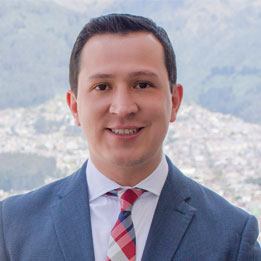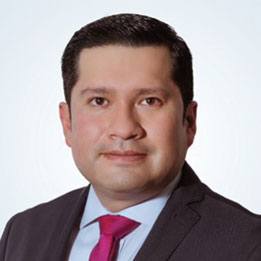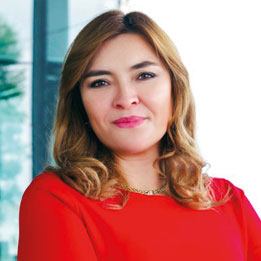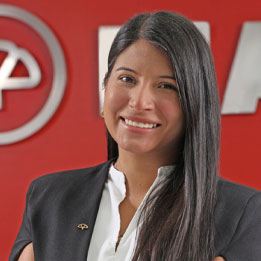
Ecuador 2022
Supported by the Association of Corporate Counsel






Gerente legal and apoderado especial | Directv Ecuador







Legal counsel GM Ecuador legal department | Fresenius Medical Care





General counsel and chief compliance officer | Holcim



Legal and corporate affairs director | Cervecería Nacional

Legal counsel GM Ecuador legal department | Motors del Ecuador

General counsel and chief compliance officer | DK Management Services











Legal and government affairs manager | Productos Avon Ecuador

Legal director | Las Lomas Ciudad Industrial y Comercial


Corporate counsel | SBA Communications Corporation - Ecuador














Director legal ecuador and legal counselor | Huawei Technologies


Director jurídico | Concentración Deportiva de Pichincha













Corporate manager of management control and risks and legal | Corporación GPF - Grupo Fybeca





Vice President of Legal and Corporate Affairs | Reybanpac





Legal chief and corporate affairs | Corporación El Rosado


Legal assistant manager | Latam Airlines Ecuador

Director jurídico | Grupo Empresarial Espinoza - GES



Head of legal and compliance andean cluster (Colombia, Ecuador, Peru) | Alcon

Senior corporate counsel, LATAM | Lumen Technologies

Gerente legal y relaciones publicas | UNACEM Ecuador


Gerente legal and compliance Ecuador, Puerto Rico, República Dominicana, Aruba and Curazao | Linde


Corporate legal manager | Asesoría y control










Ecuador has a rich natural endowment which if combined with climate-friendly policies has the potential to be a source of the country’s sustainable economic development. With the government initiatives on Environmental, Social, and Governance (ESG) such as the Green Bonus scheme, Ecuador’s in-house lawyers have been proactive in navigating their organisations by encouraging eco-friendly policies and socially responsible governance. Despite the challenges the country has faced through the unprecedented pandemic crisis, the legal teams serving the companies in Ecuador demonstrably helped businesses to drive success while mitigating risks and reducing potential legal issues.
This year’s GC Powerlist: Ecuador highlights the role of in-house counsel playing a vital part in promoting global initiatives including Corporate Social Responsibility (CSR). Taking the lead in implementing corporate agendas with social accountability, in-house counsel in Ecuador promoted diversity and inclusion as well as community engagement into their corporate governance internal model. Recognised as business partner, the in-house legal role in Ecuador continues to evolve as strategic advisor, leading the latest opportunities and challenges.
Remaining abreast of the latest legal technology, legal functions demonstrated their increasing efficiency and productivity over the pandemic. Technology will continue the push for in-house lawyers to work faster and smarter. Driving further efficiencies in processes, the counsel contained within these pages have utilised their legal knowledge strategically alongside business insight to make a positive impact towards their organisation’s success.
It was my pleasure to speak and extensively interview the most agile, innovative, and exceptional in-house lawyers in Ecuador spanning international and domestic business titans and organisations at the cutting edge of technology and the future of work, each with their own priorities and challenges. I would like to extend the sincerest gratitude to all the general counsel and in-house lawyers who participated in this edition of the GC Powerlist: Ecuador. This edition identifies the most impressive counsel who have tackled new challenges caused by the pandemic as well as the development of eco-friendly regulations and policies.
Legal 500 returned to Miami to celebrate the launch of the GC Powerlist: Miami 2026, hosted in partnership with Winston & Strawn. The event brought together leading in-house counsel from across the city for an evening recognising their work, leadership, and clear impact within their organisations.
Juan Azel, Chair of Winston & Strawn’s Fintech, Banking and Payments practice, opened the evening with remarks on the opportunities emerging from Miami’s economic growth.
He was followed by keynote speaker Nilo J. Barredo, Head of Legal, Wealth, Banking & Lending for the Americas and Director, Associate General Counsel at Citigroup, who shared perspectives on the evolution of Miami’s in-house ecosystem.
A reception followed, giving this year’s honourees the chance to connect with peers and exchange experiences.
Legal 500 extends its thanks to Winston & Strawn for supporting the recognition of Miami’s outstanding general counsel community, and congratulates all recognised general counsel on their achievements.